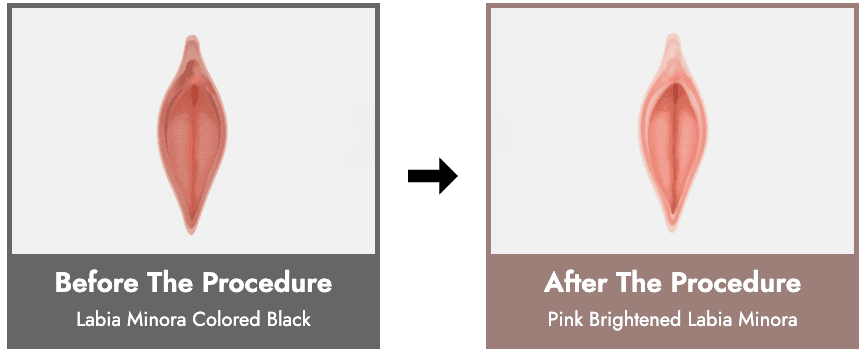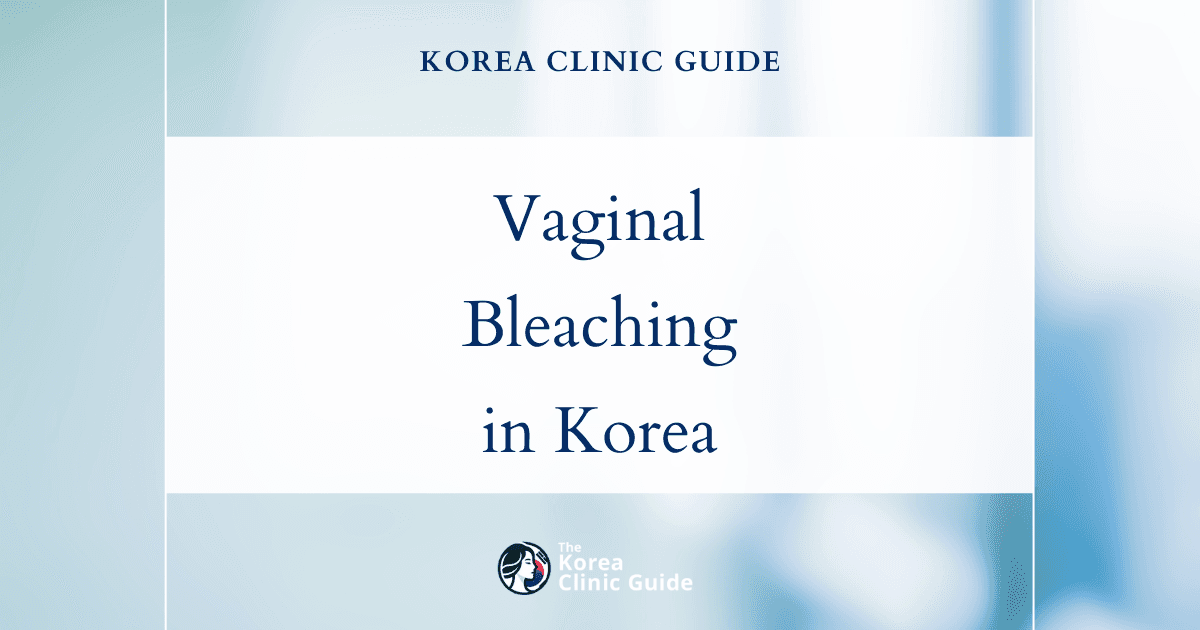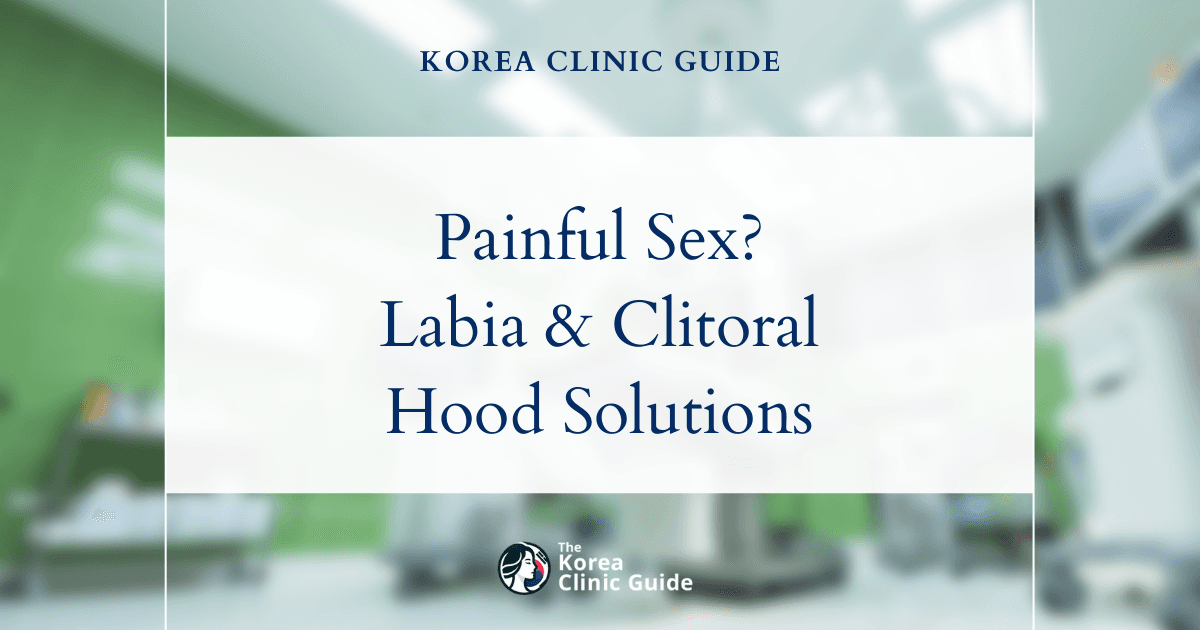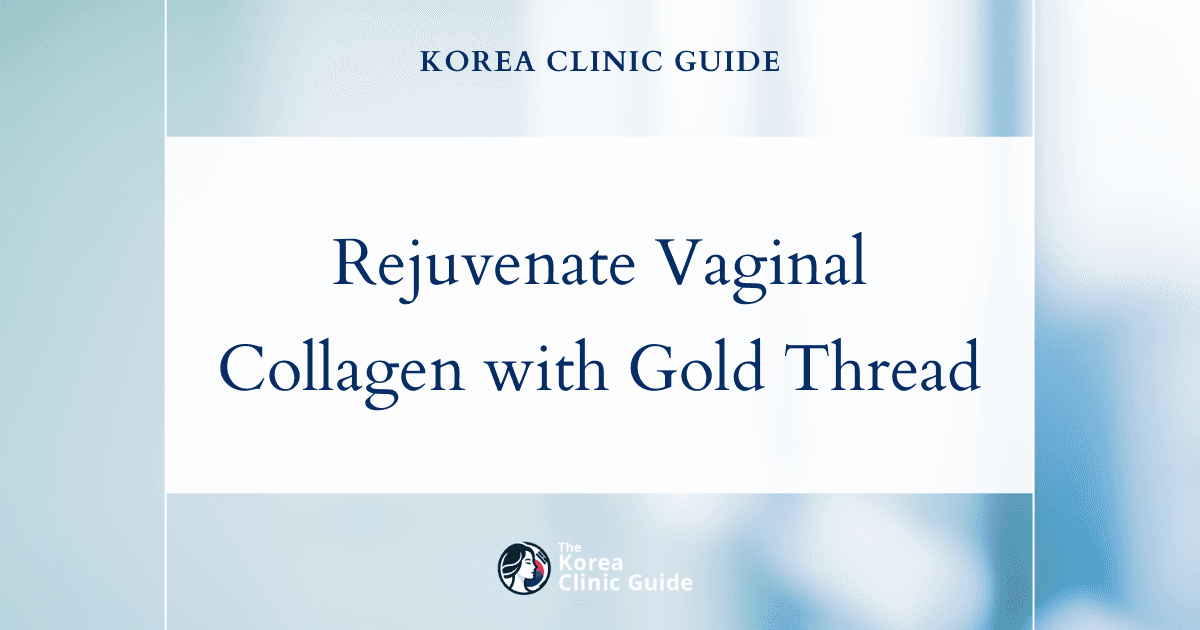Medical Tourism Blog
Labia Majora Whitening in Korea | Best Clinics, Costs, Procedure Types & More

Table of contents
- What Is Labia Majora Whitening?
- Best Clinics in Korea for Labia Majora Whitening
- Labia Majora Whitening in Korea
- Cost of Labia Majora Whitening in Korea
- Alternatives to Labia Majora Whitening
- Conclusion
Considering treatment in Korea? Everything you need to know e.g. — how to avoid scams, visas, interpreters, recovery tips — in our Medical Tourism Master Guide. Plan with confidence in minutes, not weeks!
In the ever-evolving landscape of beauty standards, Korea has once again taken center stage with the rise of labia majora whitening—a procedure that speaks volumes about the deep-seated cultural emphasis on skin tone uniformity and aesthetic refinement. As this cosmetic trend gains traction, it prompts a deeper look into the motivations, costs, and viable alternatives that accompany such intimate transformations.
What Is Labia Majora Whitening?

Labia Majora Whitening is a cosmetic medical procedure aimed at lightening the skin of the labia majora, the outer folds of the vulva. This procedure has gained popularity in many parts of the world, including South Korea, a country known for its advanced cosmetic and skincare industries. The desire for a more uniform skin tone in intimate areas has led to the development of several techniques aimed at achieving lighter pigmentation in the labia majora.
The Purpose of Labia Majora Whitening
The primary purpose of labia majora whitening is to address skin discoloration and hyperpigmentation. Factors such as genetics, hormonal changes, aging, and friction can contribute to darker pigmentation in the intimate areas. For individuals seeking to enhance their aesthetic appearance or improve self-esteem, this procedure offers a viable solution.
Who Is It For?
Labia majora whitening is typically sought by individuals who are unhappy with the pigmentation of their external genitalia. This includes women who experience uneven skin tones or hyperpigmentation resulting from natural aging, hormonal imbalances, childbirth, or skin conditions. It is important for candidates to have realistic expectations and to consult with a qualified healthcare provider to determine if they are suitable for the procedure.
Types of Labia Majora Whitening Procedures
There are various approaches to labia majora whitening, each with its own methodology, benefits, and considerations:
-
Topical Creams and Serums: These are over-the-counter or prescription products that often contain ingredients like hydroquinone, kojic acid, or arbutin. These agents work by inhibiting melanin production, gradually lightening the skin over time. It is a non-invasive option, although results can vary based on individual skin types and consistency of use.
-
Chemical Peels: Chemical peels involve the application of a chemical solution to exfoliate and remove the top layers of the skin. This can help reduce pigmentation and encourage the growth of new, lighter skin. The intensity of the peel can vary, from milder formulations to more concentrated solutions, depending on the desired results and skin sensitivity.
-
Laser Therapy: Probably the most advanced technique, laser treatments use focused beams of light to target and break down melanin deposits in the skin. This promotes a lighter skin tone and can be adjusted to suit different skin types, ensuring safety and efficacy. Laser therapy generally requires multiple sessions and is performed in a clinical setting.
-
Microdermabrasion: This method involves a minimally abrasive instrument to gently sand the skin, removing the thicker, uneven outer layer. Although more commonly used for facial treatments, it can be adapted for use on the labia, effectively reducing surface pigmentation.
-
Natural and Home Remedies: While not medically endorsed to the same degree, some individuals opt for natural remedies like lemon juice, turmeric, or aloe vera. While these options may offer mild improvements, they typically lack the potency and efficacy of professional treatments.
Considerations and Risks
Undergoing labia majora whitening involves several considerations. The skin around the genital area is sensitive, and any procedure carries risks such as irritation, allergic reactions, or temporary discoloration. It is crucial to consult with a healthcare professional to discuss potential risks, benefits, and alternative options. Additionally, professional guidance ensures that the chosen procedure aligns with the individual's health history and skin type.
Best Clinics in Korea for Labia Majora Whitening
Listed below are the best clinics in Korea for labia majora whitening:
| Clinic Name | Key Features | Special Techniques |
|---|---|---|
| SH Clinic Website | SH Clinic in Sinsa, Seoul is a multi-specialty medical center uniting stem-cell science, women’s healthcare, aesthetic dermatology, and modern plastic surgery under one roof. Specializing in Stem Cell Therapy and Gynecology, the clinic delivers personalized, comprehensive care through the SH Stem Cell Center and the SH Gynecology Clinic, which offers a full spectrum of women’s health services and vaginal rejuvenation options. All surgeries and procedures are performed directly by a highly experienced, board-certified gynecologist recognized with a commendation from the Minister of Health and Welfare, ensuring expert, comfortable care in a setting designed for female patients. | - Labia majora whitening - Labiaplasty - Vaginoplasty - Vaginal fillers - Stem cell injections - HIFU-based vaginal rejuvenation - Vaginal tightening - Implant surgery - On-site laser and pigmentation treatments for labial skin - Regenerative medicine approaches |
| Sinsoe Women's Clinic Website | Sinsoe Women’s Clinic, located at Gangnam Station, is a women-focused center offering a comprehensive range of services that combine intimate aesthetics, advanced gynecologic care, and personalized skin programs. Its portfolio spans women’s plastic surgery such as vaginoplasty and labiaplasty, a dedicated Uterine Fibroid Center providing non-invasive HIFU treatment, and full-spectrum gynecology addressing infections and STDs, menstrual disorders, urinary incontinence, and menopause management. Complementing these are customized skin and body programs and a hair loss clinic, allowing the team to coordinate individualized plans that support both health and aesthetic goals—an ideal foundation for patients considering labia majora whitening. | - Labiaplasty - Vaginoplasty - Non-invasive HIFU for fibroids - Comprehensive gynecology on site - Women-focused expertise - Intimate-area aesthetic skill - Personalized skin programs - Streamlined, coordinated care - Gangnam Station location |
| Lydia Clinic Website | Lydia Clinic, located at Gangnam Station, is a women’s health and aesthetics center offering specialized care for intimate pigmentation concerns, including patients seeking labia majora whitening in Korea. Through its genital area whitening services, the clinic focuses on achieving a more uniform tone and enhancing confidence with discreet, personalized treatment plans. Backed by a comprehensive portfolio, Lydia Clinic also provides advanced vaginal surgery options such as laser vaginal tightening, injection-based tightening, vaginal tightening surgery, implant vaginal plasty, labiaplasty, clitoral hood reduction, and G-spot augmentation. Complementary women’s wellness and aesthetic services include fibroid dissolution, incontinence surgery, areola/nipple, underarm, and elbow whitening, mole/wart removal, lifting treatments, acne care, skin boosters, fat-dissolving injections, hair removal, fillers/Botox, and anti-aging therapies such as PRP/stem cell, garlic, Cinderella, and placenta injections. | - Genital area whitening - Laser vaginal tightening - Injection-based tightening - Vaginal tightening surgery - Implant vaginal plasty - Labiaplasty - Clitoral hood reduction - G-spot augmentation - Fibroid dissolution - Incontinence surgery - Areola/nipple whitening - Underarm/elbow whitening - Mole/wart removal - Lifting treatments - Acne care - Skin boosters - Fat-dissolving injections - Hair removal - Fillers/Botox - Anti-aging therapies (PRP/stem cell, garlic, Cinderella, placenta injections) |
SH Clinic
SH Clinic in Sinsa, Seoul is a multi-specialty medical center that unites stem-cell science, women’s healthcare, aesthetic dermatology, and modern plastic surgery under one roof. Specializing in Stem Cell Therapy and Gynecology, the clinic delivers personalized, comprehensive care through the SH Stem Cell Center and the SH Gynecology Clinic, which offers a full spectrum of women’s health services and vaginal rejuvenation options. All surgeries and procedures are performed directly by a highly experienced, board-certified gynecologist recognized with a commendation from the Minister of Health and Welfare, ensuring expert, comfortable care in a setting designed for female patients.
- Direct specialist care: A board-certified gynecologist with national-level commendation performs intimate procedures personally, ensuring precision, safety, and accountability for labia majora whitening.
- Women-first environment: As a specialized women’s care clinic, SH Clinic prioritizes privacy, comfort, and sensitive communication throughout consultation, treatment, and recovery.
- Comprehensive vaginal rejuvenation toolbox: Options such as vaginal fillers, stem cell injections, HIFU-based vaginal rejuvenation, vaginal tightening, and implant surgery allow highly tailored plans that align with labia majora whitening goals.
- Laser and pigmentation expertise on site: The aesthetic dermatology team provides medical skin care and laser-based treatments for pigmentation, coordinated closely with gynecology for safe care of delicate labial skin.
- Regenerative support for optimal healing: Access to stem-cell and regenerative medicine helps enhance tissue quality and recovery when appropriate for intimate-area procedures.
- Proven intimate-area experience: A broad portfolio that includes labiaplasty and vaginoplasty reflects deep understanding of vulvovaginal anatomy and aesthetics relevant to whitening outcomes.
- Seamless, discreet care in Sinsa: Central Seoul location with modern facilities and continuity of care—from personalized planning to meticulous aftercare—led by the same physician.
You can check out their website here: SH Clinic Website
Sinsoe Women's Clinic
Sinsoe Women’s Clinic, located at Gangnam Station, is a women-focused center offering a comprehensive range of services that combine intimate aesthetics, advanced gynecologic care, and personalized skin programs. Its portfolio spans women’s plastic surgery such as vaginoplasty and labiaplasty, a dedicated Uterine Fibroid Center providing non-invasive HIFU treatment, and full-spectrum gynecology addressing infections and STDs, menstrual disorders, urinary incontinence, and menopause management. Complementing these are customized skin and body programs and a hair loss clinic, allowing the team to coordinate individualized plans that support both health and aesthetic goals—an ideal foundation for patients considering labia majora whitening.
Why Sinsoe Women’s Clinic stands out for labia majora whitening:
- Women-focused expertise: A practice centered on women’s health and aesthetics ensures care aligned with intimate concerns and goals.
- Intimate-area aesthetic skill: Experience with labiaplasty indicates precise understanding of vulvar anatomy and aesthetics—essential when planning pigmentation-focused treatments.
- Personalized skin programs: Customized skin and body treatments enable tailored protocols to address tone, texture, and comfort in sensitive areas.
- Comprehensive gynecology on site: Evaluation and management of infections, hormonal issues, menstrual disorders, and pelvic floor concerns help optimize candidacy and recovery.
- Modern, minimally invasive mindset: Offering non-invasive HIFU for fibroids reflects adoption of advanced, recovery-conscious technologies.
- Streamlined, coordinated care: Surgical, gynecologic, and skin services under one roof simplify consultation, treatment planning, and follow-up.
- Accessible location: Situated at Gangnam Station, the clinic is convenient for ongoing visits and continuity of care.
Find more about this clinic here: Sinsoe Women's Clinic Website
Lydia Clinic
Lydia Clinic, located at Gangnam Station, is a women’s health and aesthetics center offering specialized care for intimate pigmentation concerns, including patients seeking labia majora whitening in Korea. Through its genital area whitening services, the clinic focuses on achieving a more uniform tone and enhancing confidence with discreet, personalized treatment plans.
Backed by a comprehensive portfolio, Lydia Clinic also provides advanced vaginal surgery options such as laser vaginal tightening, injection-based tightening, vaginal tightening surgery, implant vaginal plasty, labiaplasty, clitoral hood reduction, and G-spot augmentation. Complementary women’s wellness and aesthetic services include fibroid dissolution, incontinence surgery, areola/nipple, underarm, and elbow whitening, mole/wart removal, lifting treatments, acne care, skin boosters, fat-dissolving injections, hair removal, fillers/Botox, and anti-aging therapies such as PRP/stem cell, garlic, Cinderella, and placenta injections.
Find more about this clinic here: Lydia Clinic Website
Labia Majora Whitening in Korea
Labia majora whitening is a cosmetic procedure that aims to address pigmentation issues in the outer folds of the vulva. In Korea, this procedure is gaining popularity among women seeking to achieve a more uniform skin tone for aesthetic purposes. As with many aspects of cosmetic and dermatological care, Korea is often at the forefront in terms of innovative treatments, patient care, and cutting-edge technology.
Consultation and Preparation
The procedure typically begins with an initial consultation with a board-certified dermatologist or cosmetic surgeon specializing in intimate area treatments. During this appointment, the practitioner assesses the patient's skin type, pigmentation levels, and overall health to determine the suitability of the procedure. Discussion regarding the patient's desired outcomes, treatment options, and potential risks are conducted in detail.
Patients are advised to avoid tanning, waxing, and using any irritating cosmetics or skincare products on the area for at least two weeks before the treatment. This precaution minimizes the risk of adverse reactions and ensures the skin is in optimal condition for the procedure.
The Procedure

Labia majora whitening in Korea generally involves the application of specialized topical treatments, laser therapy, or a combination of both, depending on the patient's specific needs and the medical professional's expertise.
Topical Treatments
Topical agents may include skin-lightening creams containing ingredients such as hydroquinone, arbutin, kojic acid, or vitamin C. These agents work by inhibiting melanin production, leading to gradual lightening over multiple sessions. The dermatologist precisely applies these creams under controlled settings, monitoring the skin's response to mitigate any potential irritation.
Laser Therapy
For patients opting for faster results, laser therapy is a popular choice. The procedure typically utilizes advanced laser technologies, such as Q-switched Nd:YAG lasers, which target and break down melanin deposits without damaging surrounding tissues. Laser sessions can range from 20 to 30 minutes, during which the patient might experience mild discomfort comparable to a rubber band snap. Most clinics offer a numbing cream to enhance patient comfort during the laser session.
Post-Procedure Care
After treatment, patients may experience mild redness, swelling, or sensitivity in the treated area. Such symptoms are temporary and typically resolve within a few days. Practitioners often recommend applying soothing ointments or creams to aid in recovery and protect the skin.
Patients are usually advised to avoid activities that could irritate the area, such as excessive heat exposure, rough clothing, or vigorous exercise, for at least 48 hours post-procedure. Additionally, diligent application of sunscreen to the area, should it be exposed to sunlight, is crucial in preventing further pigmentation and protecting the sensitive skin.
Follow-Up and Results
Achieving the desired level of lightening may require multiple sessions, spaced several weeks apart, depending on the intensity of the pigmentation and the chosen treatment modality. Regular follow-up appointments allow the dermatologist to assess progress and adjust treatment as necessary.
Patients often report satisfaction with the results, noting improved skin tone uniformity and a confidence boost. As with any cosmetic procedure, outcomes can vary, and setting realistic expectations with the practitioner during initial consultations is critical for a satisfactory experience.
Cost of Labia Majora Whitening in Korea
Labia majora whitening is a cosmetic procedure that has gained attention in various parts of the world, including South Korea—a country renowned for its advanced cosmetic and medical treatments. The cost of labia majora whitening in Korea can vary greatly depending on several factors, including the clinic's reputation, the procedure's complexity, and any additional treatments that may be recommended by the medical professionals.
Costs of the Procedure
In Korea, the price range for labia majora whitening typically falls between approximately 1,000,000 KRW to 3,000,000 KRW (roughly $800 to $2,400 USD).
- Lower-End Clinics: Some clinics may offer more affordable options starting from 1,000,000 KRW. These might be facilities that are less centrally located or newer establishments trying to build their clientele.
- High-End Clinics: On the higher end, the cost can reach up to 3,000,000 KRW for clinics renowned for their expertise and high-quality post-operative care, often located in major cities like Seoul or Busan.
It's important for prospective patients to consider not only the cost but also the credentials and reputation of the clinic and medical team to ensure safety and satisfactory results.
Additional Expenses
When planning to travel to Korea for labia majora whitening, it's essential to budget for additional travel-related expenses. Here's a breakdown of possible costs:
-
Airfare: The cost of a round-trip flight to Korea can vary significantly based on the season, airline, and class of service. Tickets might cost anywhere from $600 to $1,200 USD for economy class from major international locations.
-
Accommodation: Depending on the level of comfort and location, hotel expenses range from $50 to $200 USD per night. Staying near the clinic may reduce transportation costs and offer convenience.
-
Local Transportation: Public transportation in Korea is relatively affordable. A transportation budget could range from $5 to $15 USD per day using buses or subways. Alternatively, taxis are also available but are a more expensive option.
-
Food and Miscellaneous: Daily expenses for food and incidental purchases might cost between $20 to $50 USD per day, depending on personal preferences.
Total Estimated Costs
Considering both the procedure and travel expenses, the total cost for someone traveling to Korea for labia majora whitening could range from approximately $2,000 to $5,500 USD. This estimate is dependent on choices relating to the level of comfort and services required during the trip. It's advisable for patients to contact several clinics in Korea directly for specific quotes and to inquire about any package deals they might offer to international patients.
Alternatives to Labia Majora Whitening

When considering aesthetic or cosmetic treatments, exploring various options is essential to make informed decisions that best align with individual goals and comfort. While labia majora whitening has gained attention, there are other alternatives that individuals in Korea and around the world might consider. Here's a look at three recommended alternatives:
1. Labia Majora Rejuvenation
Labia majora rejuvenation involves a series of non-invasive or minimally invasive procedures aimed at enhancing the appearance and texture of the labial tissue. Techniques such as laser therapy, radiofrequency treatments, and dermal fillers can improve skin elasticity and volume. These treatments stimulate collagen production, resulting in a firmer and more youthful appearance without altering natural pigmentation. Patients often opt for rejuvenation to address concerns like sagging or loss of volume due to aging.
2. Intimate Area Hydropeeling
Hydropeeling is a gentle exfoliation procedure that utilizes water-based solutions to cleanse, hydrate, and rejuvenate the skin. In intimate areas, this treatment can reduce discoloration, remove dead skin cells, and improve overall skin tone. While not specifically whitening, hydropeeling encourages a healthier, more even appearance of the skin. It is less invasive compared to chemical peels or bleaching creams and is suitable for individuals looking to improve skin texture and clarity while minimizing irritation.
3. Natural Skin Care Regimen
Embracing a natural skin care regimen involves the use of gentle, ingredient-focused products designed to hydrate and nourish the sensitive skin of the labia majora. Regularly applying moisturizers, oils like coconut or almond oil, and aloe vera gel can help maintain moisture and improve the skin's appearance over time. Additionally, some individuals incorporate natural brightening agents like vitamin C serums or kojic acid creams, which can improve skin tone safely and gradually without the risks associated with more aggressive whitening treatments. Regular exfoliation and maintaining overall skin health can subtly enhance the appearance of the labia majora in a gradual and non-invasive manner.
Each alternative focuses on enhancing the natural aesthetics and health of the labia majora without the exclusive goal of whitening, enabling individuals to make choices that prioritize skin health and personal comfort.
Conclusion
In conclusion, labia majora whitening has emerged as a notable trend within Korea's cosmetic industry, reflecting broader societal ideals of beauty and personal care. While the treatment offers a solution for those seeking to enhance their appearance and boost self-confidence, it is essential to consider both the financial implications and the potential health risks. The costs associated with labia majora whitening in Korea are competitive, yet they require careful consideration alongside the benefits. Moreover, individuals should weigh these factors against available alternatives that prioritize natural and less invasive approaches. Ultimately, the decision to pursue labia majora whitening or explore other options should be informed by personal preferences and a thorough understanding of the implications.















